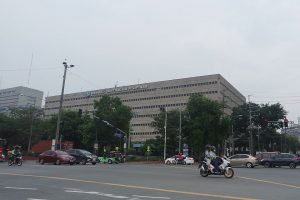




Inflation Update: Green light for easing
 DOWNLOAD
DOWNLOAD

December Economic Update: One for them, one for us
 DOWNLOAD
DOWNLOAD

Philippines Trade Update: Trade trajectories trend along
 DOWNLOAD
DOWNLOAD


Term deposit yields climb following BSP rate hike

YIELDS on term deposits climbed on Wednesday following the Bangko Sentral ng Pilipinas’ (BSP) rate hike this month and as global crude oil prices rose after China eased its coronavirus disease 2019 (COVID-19) restrictions.
Total bids for the central bank’s term deposit facility (TDF) reached PHP 362.594 billion, higher than the PHP 360-billion offer and the PHP 326.384 billion in tenders for a PHP 260-billion offering last week.
Broken down, the seven-day papers fetched bids amounting to PHP 206.804 billion, higher than the PHP 200 billion auctioned off by the central bank. This was also above the PHP 179.272 billion in tenders logged in the previous auction for a PHP 150-billion offer.
Banks asked for yields ranging from 6.075% to 6.4%, a slightly higher margin versus the 6% to 6.35% band seen a week ago. This caused the average rate of the one-week papers to climb by 3.94 basis points (bps) to 6.286% from 6.2466%.
Meanwhile, demand for the 14-day term deposits amounted to PHP 155.79 billion, lower than the PHP 160 billion auctioned off by the BSP on Wednesday but higher than the PHP 147.112 billion in tenders for a PHP 110-billion offering on Dec. 21.
Accepted yields were from 6.2% to 6.6%, a wider band compared with 6% to 6.4875% range logged the previous week. This brought the average rate of the two-week deposits to 6.3803%, up by 4.8 bps from the 6.3323% logged a week ago.
The BSP has not auctioned off 28-day term deposits for more than a year to give way to its weekly offers of securities with the same tenor. It uses term deposits and 28-day bills to mop up excess liquidity in the financial system and better guide market rates.
“The Bangko Sentral ng Pilipinas raised the volume offering in the TDF auction to PHP 360 billion from PHP 260 billion last week… A slight undersubscription was seen with the 14-day TDF, with bid-to-cover ratios at 1.03x and 0.97x the respective offer volumes for the seven-day and 14-day TDF,” BSP Deputy Governor Francisco G. Dakila, Jr. said in a statement on Wednesday.
“The results of the TDF auction reflected the pass-through of the 50-bp (basis point) rate hike by the BSP last Dec. 15. Eligible counterparties’ inclination for the shorter tenor was also observed amid preference for cash over the upcoming holidays. Going forward, the BSP’s monetary operations will remain guided by its assessment of the latest liquidity conditions and market developments,” Mr. Dakila added.
Yields on the term deposit facility rose this week due to higher oil prices, Rizal Commercial Banking Corp. Chief Economist Michael L. Ricafort said in a Viber message.
Oil prices climbed on Wednesday as markets were optimistic about fuel demand recovery as China continues to ease its COVID-19 restrictions, Reuters reported.
Brent futures for February delivery rose 31 cents to USD 84.64 a barrel, a 0.4% gain, by 0117 GMT. US crude advanced 22 cents, or 0.3%, to USD 79.75 per barrel. Amid the optimistic market mood, both benchmarks hit their highest level in three weeks on Tuesday.
China will end its quarantine requirements for inbound travelers starting on Jan. 8, the National Health Commission said on Monday, dropping a rule in place since the start of the pandemic three years ago. That raised optimism of higher demand from the top crude oil importer.
“The bids and awarded amounts also higher week-on-week, thereby effectively siphoning more pesos from the financial system, as part of the measures to help stabilize the peso and overall inflation,” Mr. Ricafort added.
Headline inflation accelerated to a 14-year high of 8% in November from 7.7% in October. For the first 11 months, inflation averaged 5.6%, still below the 5.8% full-year forecast of the BSP but above its 2-4% target. — A.M.C. Sy
This article originally appeared on bworldonline.com





 By BusinessWorld
By BusinessWorld